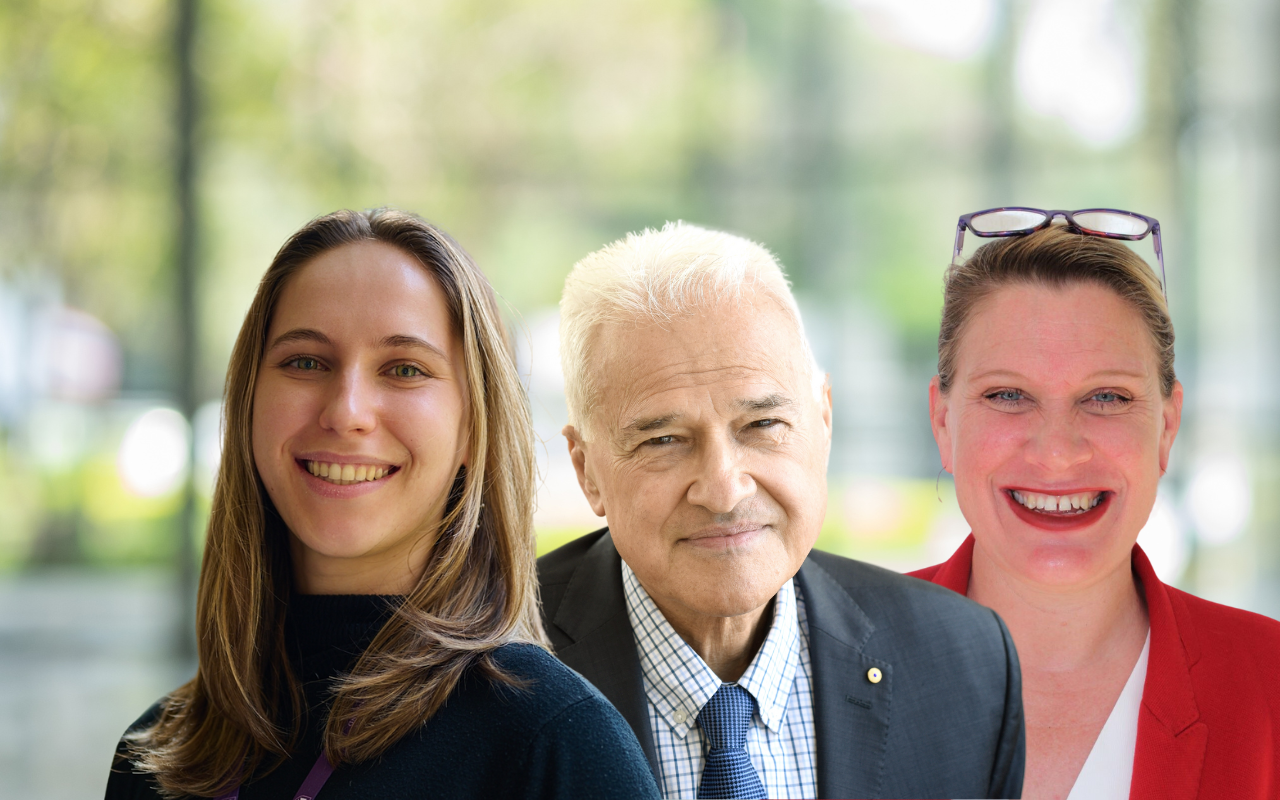Australia needs to embrace a “rights lens” in health care delivery to promote the inherent human rights of Australia’s children and young people.
This year marks the 35th anniversary of the United Nations Convention on the Rights of the Child, prompting a deep reflection on Australia’s adherence to children’s rights in health care (here). Even though Australia was an early signatory to the Convention, we still have a long way to go to uphold Article 12 in our health care system: the right of children to be engaged, heard and taken seriously.
Despite the Convention’s call for the meaningful engagement of children and young people in matters affecting them, including their health care, there remains a notable lack of direct involvement and consultation with this demographic in our health care system (here and here). Decisions are often made on their behalf without adequate input on their perspectives, needs and preferences (here).
A decade ago, a survey by the New South Wales (NSW) Bureau of Health Information involving over 8000 children and young people admitted to NSW hospitals was completed. When asked “were you involved, as much as you wanted to be, in decisions about your care and treatment?” just under half answered “yes, definitely” (here), and it seems little progress has been made since.
While the delicate balance between children’s and parents’ legal rights needs to be acknowledged, Article 12 calls for treating children with respect and creating safe spaces where they can express themselves and be listened to during decision-making processes (here). Of course, this does not mean giving children complete control over every decision or undermining parental rights.

Our work
There are several opportunities and challenges to upholding Article 12 across the Australian health care system, as found by the Listen Carefully Project. This project is spearheaded by Starlight Children’s Foundation Australia (Starlight) in collaboration with Children’s Healthcare Australasia (CHA) and is guided by an expert steering committee of children’s health care professionals, academics and advocates. The Project’s report, published in November 2021, unveiled important insights, underscoring the urgent need and widespread support for targeted improvements within our health care system (here).
Through literature analyses, interviews with youth representatives, and insights from health care professionals across various disciplines, our research identified some of the difficulties in upholding Article 12 here in Australia. We undertook a thorough literature review of peer-reviewed articles published from 2000 to 2018, focusing on the implementation of children and young people’s right to be heard in health care and the barriers to doing this. We also conducted a survey completed by 30 members of CHA’s Special Interest Group and case studies of six paediatric health care services in Australia.
Our research revealed limited youth engagement tools and various barriers, including a lack of training for hospital staff, limited and inconsistent practice guidelines, and insufficient emphasis on children’s rights (here).
However, our recent research showed that this is not due to a lack of care or interest by health care professionals. Instead, the challenge is more a lack of time, expertise and confidence in how to do it well (here).
Hospital staff acknowledged their commitment to and the importance of upholding children’s rights to be heard in health-related decisions, with some systematic feedback-collection methods in place (here). However, these methods often lacked essential features, such as mechanisms for closing the feedback loop, meaningful consultation with youth advisory groups, and appropriate engagement with especially vulnerable demographic groups, most notably children and young people identifying as Aboriginal and Torress Strait Islander, from a culturally and linguistically diverse background, with a disability, from rural/remote areas, as well as younger children and those who are less outgoing (here and here).
How can we engage children and young people better?
As a result, we highlighted the need and the opportunities to reform how we collect feedback from children and young people for more direct and meaningful engagement. Our recommendations were in three categories (here):
- Australia needs nationally consistent guidelines for:
- establishing and maintaining youth advisory councils;
- facilitating meaningful and inclusive feedback, especially for priority groups;
- enabling an age-appropriate and child-friendly platform for collecting feedback;
- a consistent approach regarding the role of parent proxy feedback as part of family-centred care.
- At a health service level, we identified a range of opportunities for change. Health services can:
- encourage the allocation of staff members in sustainable roles dedicated to implementing Article 12;
- consistently integrate feedback collection to be “business as usual”;
- maintain dialogue with other Australian health services about Article 12 implementation;
- clearly define feedback loop closing processes at the beginning of projects involving children and young people.
- There are also opportunities for future research and development, including:
- developing child-friendly and age-appropriate feedback tools;
- designing and validating patient-reported experience measures for children and young people;
- implementing training for health care staff about meaningful youth engagement.
A strength of our project was that the respondents were from across all Australian states and territories, representing general and paediatric hospitals. However, our sample size was small, which limited our statistical analyses. We also allowed participants to skip items to reduce the study burden, which may have led to biases.
Implications
To address key recommendations of the Project, CHA is leading a national collaboration with Starlight, the University of New South Wales SPHERE team, and a range of researchers, advocates, consumers and clinicians. Together, we are developing age-appropriate and dedicated paediatric patient-reported experience measure tools. We call these pPREM tools. This work attempts to effectively capture the responses of children and young people to the fundamental questions in health care delivery: “What matters to you?” and “How would you like to be asked?”.
Although patient-reported measures are accepted tools in health care services globally, there are notable gaps for children and young people in Australia (here and here). The pPREM tools are, therefore, expected to address these gaps and have cascading benefits in enhancing health care delivery by providing a more comprehensive understanding of the needs and preferences of this critical yet often unheard demographic group (here).
Informed by the Report’s findings and with the broad-based support of partners, the development of the pPREM tool is underway. An innovative co-design methodology directly engages children and young people about the aspects of their health care experience they want included in this tool. This empowers them to share what they believe is important and in a way that is engaging and appropriate for them. Details and results from the first stage are expected to be shared later this year.
Conclusion
Embracing a “rights lens” in health care delivery promotes the inherent human rights of Australia’s children and young people, works to serve their best interests, and aligns with the philosophy of family-centred care (here). It addresses underlying health inequities, ensuring that all children receive the care they need regardless of their background (here).
The Listen Carefully Project Report is publicly available, with the aim of promoting knowledge sharing, improvements, and national alignment. It is, most importantly, a building block for more work to follow (here) to ensure that every child and young person who engages in health care can be involved, as much as they want to be, in their own treatment and care.
The authors acknowledge their colleagues on the Listen Carefully Project advisory committee, and thank the many participants involved in the ongoing pPREM work.
Emeritus Professor Leslie White retired as New South Wales Chief Paediatrician in 2016 and continues as Patron of Children’s Healthcare Australasia and as non-executive director on boards related to health care and medical research.
Erika Fortunati is the Research and Evaluation Manager at the Starlight Children’s Foundation, with research interests in health equity and child health advocacy.
Dr Claire Treadgold is the National Manager of Research and Evaluation at the Starlight Children’s Foundation and an Adjunct Associate Professor in the Discipline of Paediatrics, University of New South Wales Medicine and Health.
Dr Eden Robertson is a behavioural scientist specialising in supporting families who have a child with a serious illness.
Barbara Vernon is the Chief Executive Officer of Children’s Healthcare Australasia.
The statements or opinions expressed in this article reflect the views of the authors and do not necessarily represent the official policy of the AMA, the MJA or InSight+ unless so stated.
Subscribe to the free InSight+ weekly newsletter here. It is available to all readers, not just registered medical practitioners.
If you would like to submit an article for consideration, send a Word version to mjainsight-editor@ampco.com.au.

 more_vert
more_vert